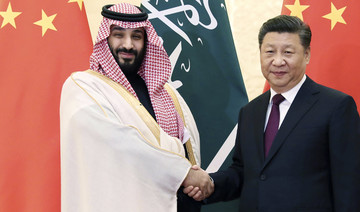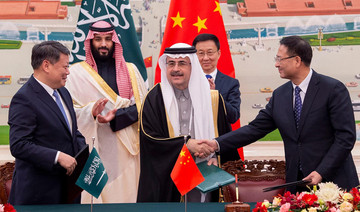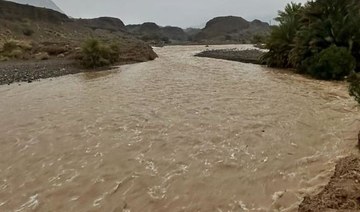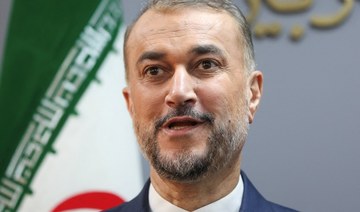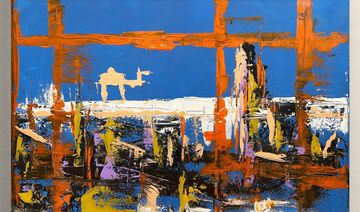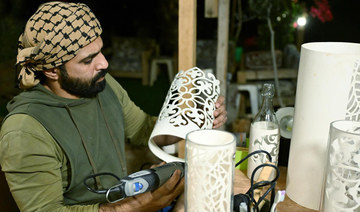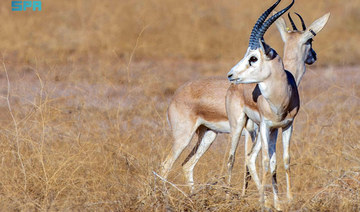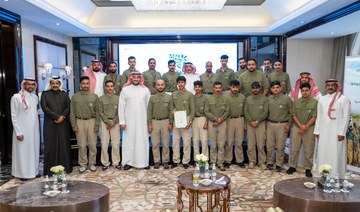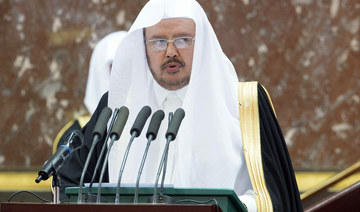RIYADH: Beijing “firmly supports” Saudi Arabia’s positive role in the Middle East and its contribution to peace and stability in the region, China’s foreign minister said in a wide-ranging interview on the strength of relations between the two countries.
Speaking to Asharq Al-Awsat, the Arabic sister paper of Arab News, Wang Yi praised the Kingdom’s approach to tackling terrorism and extremist ideologies.
He said increased trade and economic cooperation has been “fruitful” and helped each nation move toward the goals set by their ambitious economic plans. In Saudi Arabia, Vision 2030 is a sweeping program to diversify the economy and boost public services, while China’s Belt and Road Initiative aims to develop infrastructure and investments in Europe, Asia and Africa.
Both programs have featured prominently during Crown Prince Mohammed bin Salman’s visit to China, which started on Thursday.
While the visit has been dominated by a series of deals related to investment, China’s political support for the Kingdom comes at a time of crucial strategic importance in the Middle East as Iran continues to extend its influence in conflicts such as Yemen and Syria.
“Saudi Arabia plays an important role in the Middle East, and has made a unique contribution to security, stability and common development in the region,” Wang said.
“China firmly supports Saudi Arabia in upholding its sovereignty, security and stability, in playing a positive and constructive role in the evolving regional landscape, in developing friendship and cooperation with countries in the region, and in making greater contribution to peace, stability and development in the Middle East and the Gulf region.”
Security has featured prominently during the crown prince’s visit and President Xi Jinping urged the two countries to work closer to counter extremism when they met on Friday.
Wang praised Saudi Arabia for developing a set of deradicalization measures that have helped to safeguard both the Kingdom and the region.
“Saudi Arabia intensified its fight against terrorist organizations, including cutting off the flow of funding for terrorism, playing an active part in international cooperation against terrorism and sponsoring the UN Counter-Terrorism Center,” Wang said.
“On deradicalization, Saudi Arabia condemned the extremists’ perversive interpretation of Islamic teachings, encouraged religious tolerance and established multiple counseling and care centers to guide and reeducate those influenced by extremist ideologies.”
He said China is ready to work with Saudi Arabia through policy, intelligence sharing, technology and training to “safeguard our common security.”
The foreign minister said both China and Saudi Arabia are victims of terrorism, and he outlined his country’s struggle against militants based in Xinjiang province in the west.
China blames the East Turkestan Islamic Movement for hundreds of bombings and other attacks in recent decades.
Wang said his country had drawn on the experience of Saudi Arabia and other countries in setting up “vocational education and training centers” to tackle extremism.
“The relevant measures are aimed at countering the influence of extremist terrorist ideologies. They are not targeted at any particular ethnicity or religion,” he said.
Wang also discussed China’s role in helping to resolve the Middle East’s key conflicts. He said China has been a “staunch supporter of the cause of the Palestinian people” and had supported the Arab Peace Initiative presented by Saudi Arabia and endorsed by the Arab League in 2002.
He reiterated his country’s support for a political solution to the Syria conflict and said China’s approach to resolving wars in the region was through “peace and dialogue.”
“As the Middle East continues to see complex changes with rising security challenges, China will step up communication and coordination with Saudi Arabia and other regional countries and together strive for lasting peace, security, prosperity and development in the region,” Wang said.
The crown prince’s visit has already seen several agreements signed to boost cooperation between the two countries, and the minister said this would also feed into improving stability in the region.
The two countries on Friday agreed 12 points of cooperation covering investment in the petro-chemical industry, renewable energy and counter-terrorism. An investment forum the same day reached deals worth $28 billion.
Saudi Aramco also signed an agreement to form a $10 billion joint venture with two Chinese firms to develop a refining and petrochemical complex in Liaoning province.
Wang outlined the increased cooperation in recent years, under which bilateral trade reached more than $63 billion in 2018. He said Saudi Arabia had been China’s largest trading partner in the Middle East and Africa for 18 consecutive years.
“China and Saudi Arabia have achieved fruitful results in practical cooperation as the two countries seek greater complementarity between the Belt and Road Initiative and the Vision 2030 of Saudi Arabia,” he said.
“Given the complex regional and international situation, the visit by the crown prince will go a long way to enhancing strategic mutual trust between the two countries, boosting practical cooperation in all areas and upholding peace and stability in the region.”
Saudi crown prince visit builds on partnership of trust: Chinese FM
Saudi crown prince visit builds on partnership of trust: Chinese FM

- Wang Yi said increased trade and economic cooperation has been “fruitful” and helped each nation move toward the goals set by their ambitious economic plans
- In Saudi Arabia, Vision 2030 is a sweeping program to diversify the economy and boost public services, while China’s Belt and Road Initiative aims to develop infrastructure and investments in Europe, Asia and Africa
Saudi Arabia did not participate in intercepting Iranian attacks on Israel – sources
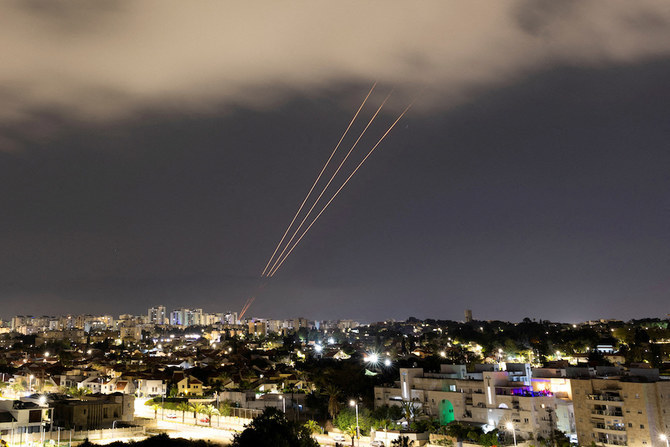
- Israeli news websites have alleged Kingdom participated in recent defense coalition that confronted Iranian attacks
- Iran launched drones and missiles toward Israel on Saturday evening into Sunday morning in response to Israeli strikes
RIYADH: Informed sources denied to Al Arabiya on Monday Saudi Arabia’s participation in intercepting Iranian drones during its attack on Israel on Saturday.
Israeli news websites had published statements attributed to an official Saudi website stating that the Kingdom participated in the recent defense coalition that confronted the Iranian attacks.
“There is no official website that published a statement about Saudi participation in intercepting attacks against Israel,” the sources told Al Arabiya.
Iran launched drones and missiles toward Israel on Saturday evening into Sunday morning and described the attack as a response to several crimes, including the strike on its consulate in Damascus on April 1.
Tehran indicated that the attack targeted military targets, while the Israeli army announced that it intercepted 99 percent of the Iranian missiles.
Saudi king, crown prince send condolences to Sultan of Oman after flood deaths
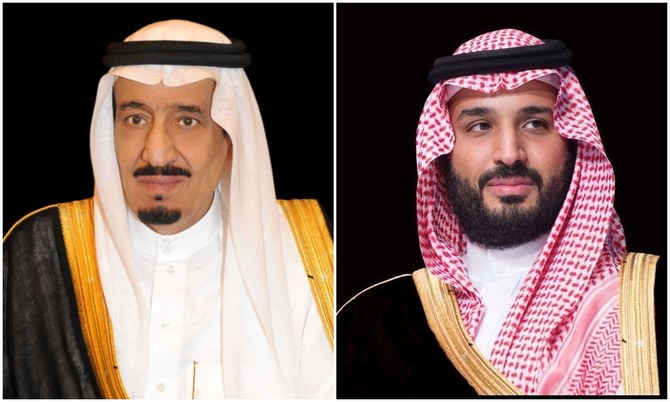
- A group of school children and a driver died when their vehicle was overtaken
RIYADH: King Salman and Crown Prince Mohammed bin Salman on Monday sent cables of condolences to Sultan Haitham bin Tariq after 17 people died in flooding in several parts of Oman.
The Saudi leaders sent their sincerest condolences to the sultan, and the families of the deceased, the Saudi Press Agency reported.
A group of school children and a driver died when their vehicle was overtaken, authorities said.
Civil defense officials gave the death toll for the rains, which saw Oman’s North Al Sharqiyah province hardest hit. The Royal Oman Police and the Omani military deployed to the province to transport citizens out of flooded areas
Heavy rainfall often causes flash flooding in the sultanate, drawing the curious from their homes to nearby dry riverbeds, known in Arabic as “wadi.” In flooding, they can quickly fill and wash away people and vehicles.
— with input from The Associated Press
Saudi independent musician takes road less traveled
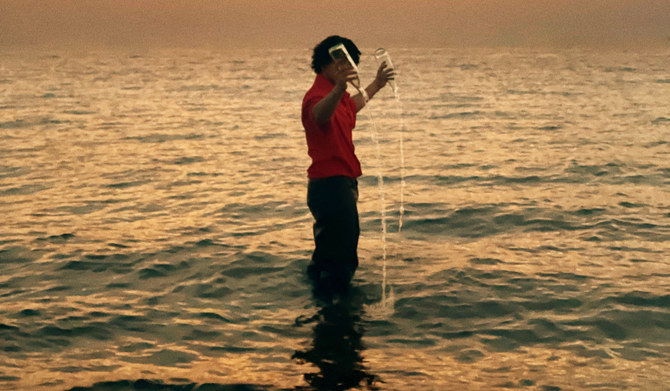
- Artist SOVL speaks on the challenges and joys of making music independently
RIYADH: As the music scene diversifies in Saudi Arabia, from psychedelic rock to electronic dance, young artist SOVL is bringing a new flavor to the mix.
SOVL is a self-taught independent musician who was on a quest to create a top-notch, industry-standard album on his own that reflected his personal artistry and carried a meaningful narrative. He platformed a distinct blend of alternative, modern, and indie rock, all rooted in the DNA of guitar music.
“As an independent musician, it’s a harder process than someone, say, signed to a label. But I try to take advantage of what I have,” he said.
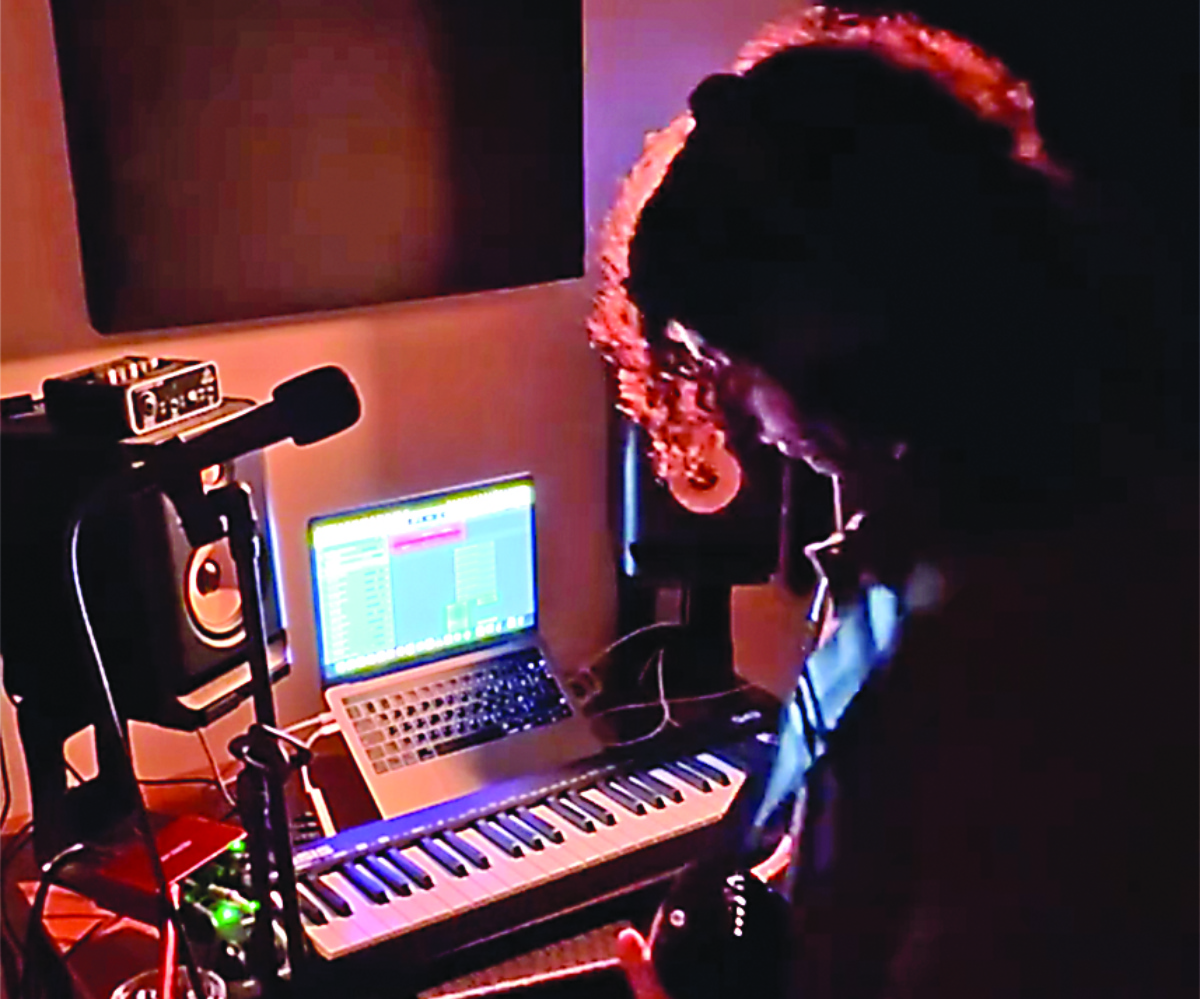
The Saudi rockstar, 22, debuted his first album “Too Much Is Not Enough” last December. The album represented a bold artistic leap as SOVL, a producer, songwriter, and singer, ventured into the captivating realm of full-length storytelling through his music.
The 10-track work is an emotional odyssey. Open to interpretation, the songs become a canvas upon which the listener’s own feelings are painted.
In a world where the pursuit of “too much” often takes center stage, “Too Much Is Not Enough” offers a message that resonates with all: In the pursuit of everything, we must not forget to preserve the most essential part of our being — ourselves.
I firmly believe that you can write and record music right from your own bedroom and doing so can make the final product more genuine, presenting your art exactly as you envision it.
SOVL, Saudi music artist
But before the full body of work came along, his journey was nothing but relentless.
“When I laid my hands on my first electric guitar in 2019, I was taking a different approach in learning the instrument,” he said. His technique was more makeshift than anything: placing his fingers wherever they landed or strumming whatever sounded right until he began learning some basics of guitar chord theory.
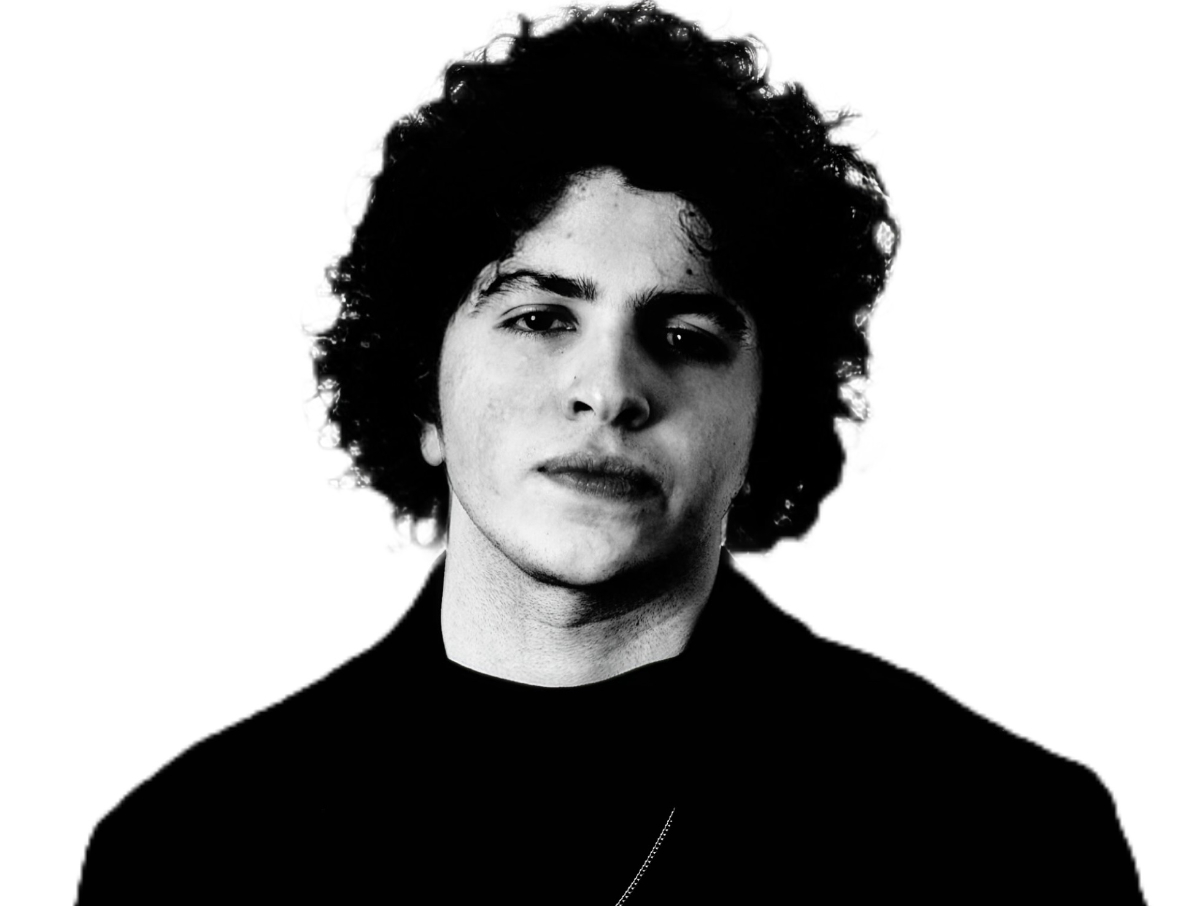
He later began recording his music on the beginner-friendly GarageBand before moving on to using the Logic Pro software and experimenting with different sounds.
SOVL released his single “What’s Going On?” in 2021, his first official launch into the local music scene as an indie alternative artist. The refreshing sound brings listeners back to the rock gems of the 70s like The Who and The Clash, who inspired much of his music.
He also tries to infuse a bit of Arabic spirit into his music; the oud instrument makes an appearance in some of his songs, including “Ana.”
While making music is the easy part, some other aspects of the industry like marketing and distribution can be difficult to tackle.
A record label, for example, would handle cover art, music video production, and music distribution. “It (would have) been much easier to sign with a record label so they could get all that sorted,” he said.
Regardless of the challenges, SOVL expressed his joy in having the freedom of creative direction: “I’m a strong advocate for the do-it-yourself approach. I firmly believe that you can write and record music right from your own bedroom and doing so can make the final product more genuine, presenting your art exactly as you envision it.
“Don’t get me wrong; there’s absolutely nothing wrong with signing to a major label,” he noted. “It’s a fantastic opportunity for those who have it. However, in a world flooded with too much music content, it can be challenging to stand out and get your unique sound heard.”
For his first album’s cover art, he enlisted the help of his friends. They took an impromptu one-day trip to the Eastern Province for the makeshift photoshoot and ended up filming one of his music videos there as well.
“It takes a whole lot of belief, and my friends have had my back since the get-go,” he said about the experience.
Many independent artists now are utilizing social media platforms like TikTok to promote their music, but SOVL says their approach is a bit “cliche” for his persona.
Personifying a rather mysterious image, hence the anonymous stage name, and presenting a style that is much more nuanced than generic pop, he allows his sound and lyrics to speak for themselves.
His album, although niche in genre, presents an exploration of a rather universal experience. He narrates the battle within to settle for what we already have. The theme is encapsulated in the album cover, which features the artist pouring water into an already plentiful and vast sea.
What distinguishes SOVL is his continuous pursuit to diversify not just genres but the very composition of albums in the novel Saudi music industry. Concept albums, which can tell a larger story than what could be contained in a single track, enhance the listeners’ experience of various notions.
SOVL is adamant about making and releasing music that is authenticated by genuine and soulful feelings, and his name serves as a reminder of that.
He said: “The album is super focused lyrically, on the theme, the sound, and some of the listeners criticized me on that point. Because it was my first album, (they believe) it should be a showcase of what you’re capable of, but on a broader aspect.
“With the Extended Edition, going forward, I’m going to broaden the sound, experiment a bit, but still with the same themes … It’s also to compel the story.”
While the writing and producing process is personal and self-centric, the product may not be everyone’s cup of tea, he said. Pop sensibility is not the artist’s goal, but he understands that broadening the scope of his work, even slightly, will create a more palatable experience for listeners to get into more psychedelic and grunge alternative rock.
“What I’m trying to do here is get people interested in different colors of music,” he said. “This is one that hasn’t been targeted yet here (in Saudi Arabia), but I’m really glad to try and start it.
“The scene here and the talents are still developing their musical identities … If you’re interested in music, just go for it. Once you start and find it’s really interesting, you’re maybe gifted, so try to invest more time on that,” he added.
SOVL’s goal is to prove, not only to himself but also to his friends and aspiring musicians, that artists can take an indie approach and still achieve their dreams in the world of music.
His album is out now on all popular streaming platforms.
King Salman Royal Reserve — an ecological haven
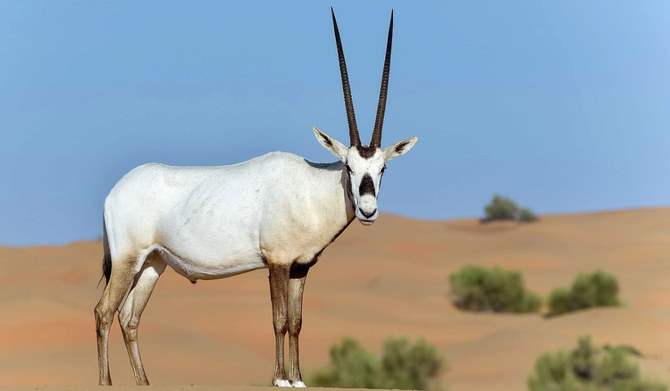
- Fahd Al-Shawaier told Arab News: “The diverse wildlife inhabiting the area is huge … Arabian oryx groups were recently released, and plans are underway to reintroduce species formerly present in the area”
JEDDAH: In the northern part of the Kingdom, the King Salman bin Abdulaziz Royal Reserve, which is recognized by BirdLife International, has strengthened its standing as one of the biggest and most important bird regions in the world through recent expansions.
The additions to the global bird sites within the reserve include the At-Turaif area, Harrat crater, Hail area, and Tabarjal. These areas, situated on major bird migration paths, are considered important protection areas.
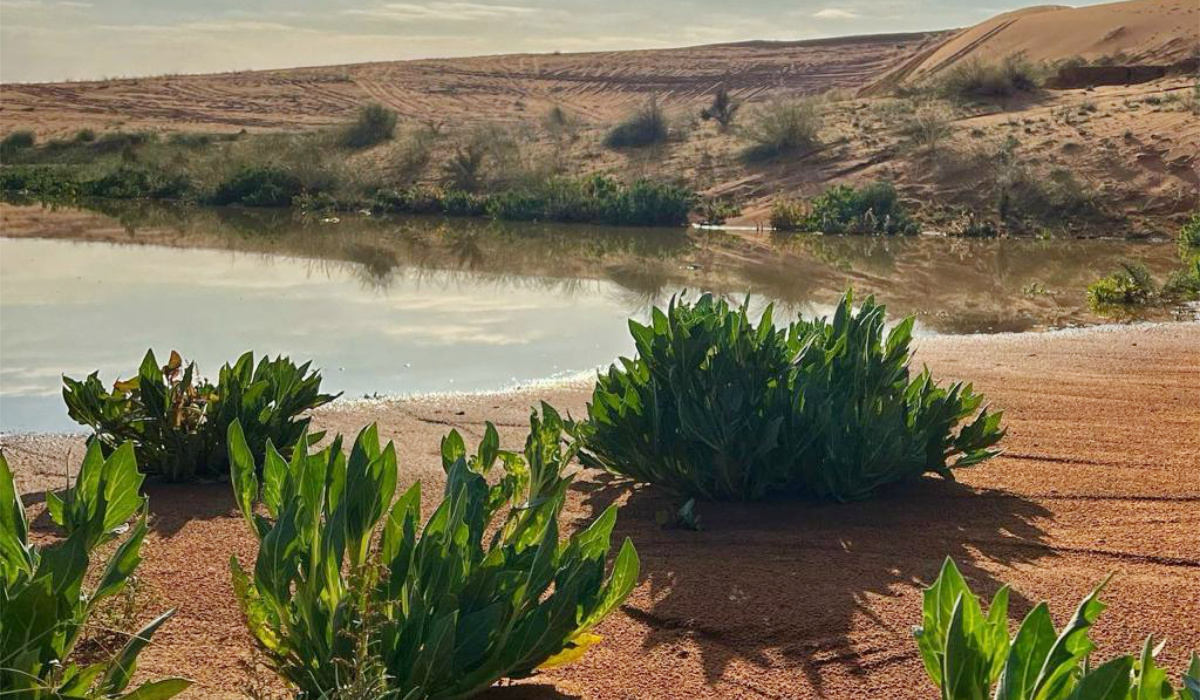
Within the expansive boundaries of the reserve, a remarkable 290 species of wild birds have been recorded. An astonishing 88 percent of these are migratory, making a stop in the reserve, while 12 percent are resident.
FASTFACTS
• 58 percent of the total birds recorded in all regions of the Kingdom find refuge within the King Salman Royal Reserve, underscoring its importance for avian conservation efforts.
• The additions to the global bird sites within the reserve include the At-Turaif area, Harrat crater, Hail area, and Tabarjal.
Notably, 58 percent of the total birds recorded in all regions of the Kingdom find refuge within the reserve, underscoring its importance for avian conservation efforts. Alarmingly, 25 species among them are listed on the Red List of Threatened Species.
A jewel in the crown
At the heart of the reserve lies Al-Khunfah Natural Reserve, spanning more than 20,000 sq km on the edge of the Nafud desert. Designated as a natural reserve in 1987, Al-Khunfah boasts a natural landscape characterized by sedimentary formations and sandstone, displaying a diverse color palette ranging from dark brown to white, with shades of gray and light brown.

The biodiversity within Al-Khunfah is spectacular, encompassing a variety of fungal, animal and plant species. Resident and migratory birds, including the houbara bustard and cranes, find sanctuary here, alongside trees such as arfaj, athel, arta, talh, harmal and lavender.
Fahd Al-Shawaier, director of communication and public relations at the King Salman bin Abdulaziz Royal Reserve Development Authority, told Arab News: “The diverse wildlife inhabiting the area is huge … Arabian oryx groups were recently released, and plans are underway to reintroduce species formerly present in the area.”

These efforts aim to restore degraded ecosystems.
Al-Khunfah does not merely house avian wonders; it hosts various reptile species, as well as rabbits and foxes. From the majestic Arabian wolf, sand cat, wild cat, and the false cobra to the elusive desert warbler, wild rabbit and desert hedgehog, the reserve is home to many species.
NUMBER
290
A remarkable 290 species of wild birds have been recorded within the expansive boundaries of the King Salman Royal Reserve.
The area is also inhabited by many resident bird species such as the Arabian partridge, greater hoopoe-lark, owl and long-legged buzzard, and migratory birds such as the steppe eagle, eastern imperial eagle, vulture and saker falcon.
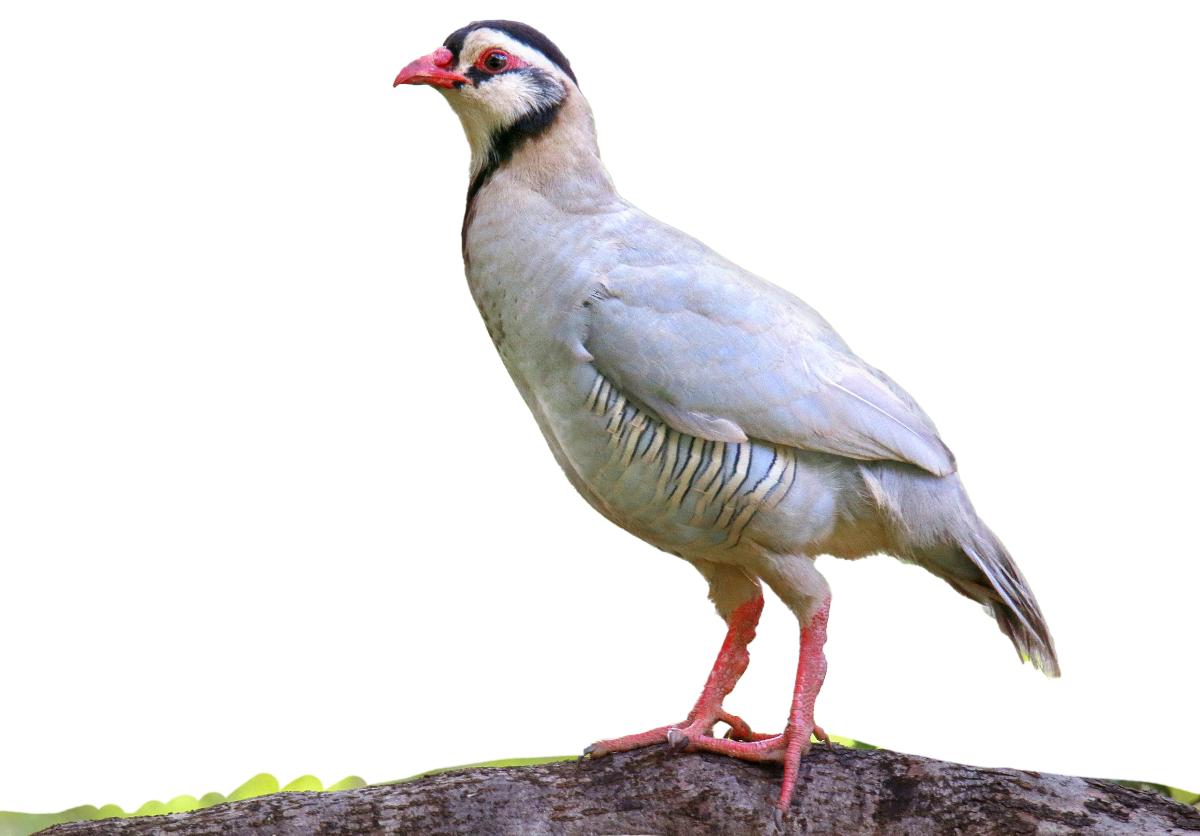
Al-Khunfah hosts a variety of habitats for reptile species such as the desert warbler, lizard, frog-headed lizard and fringed-toed lizard, among others.
There is one rabbit species in Al-Khunfah, the cape hare, and two fox species, the red fox and Ruppell’s fox, Al-Shawaier said.
Al-Khunfah’s mountains and highlands showcase nature’s splendor across areas such as Bagheith, Al-Asmar, Anz, Abu Talihat, Dhaea, Al-Dhahakiya, and valleys such as Al-Fater, Niyal, Al-Saileh, Al-Aqeelah, Abu Mataya and Wadi Al-Mawrida. Seasonal rains, ranging from 50 to 100 mm, sustain the land, plants, trees and wildlife habitats.
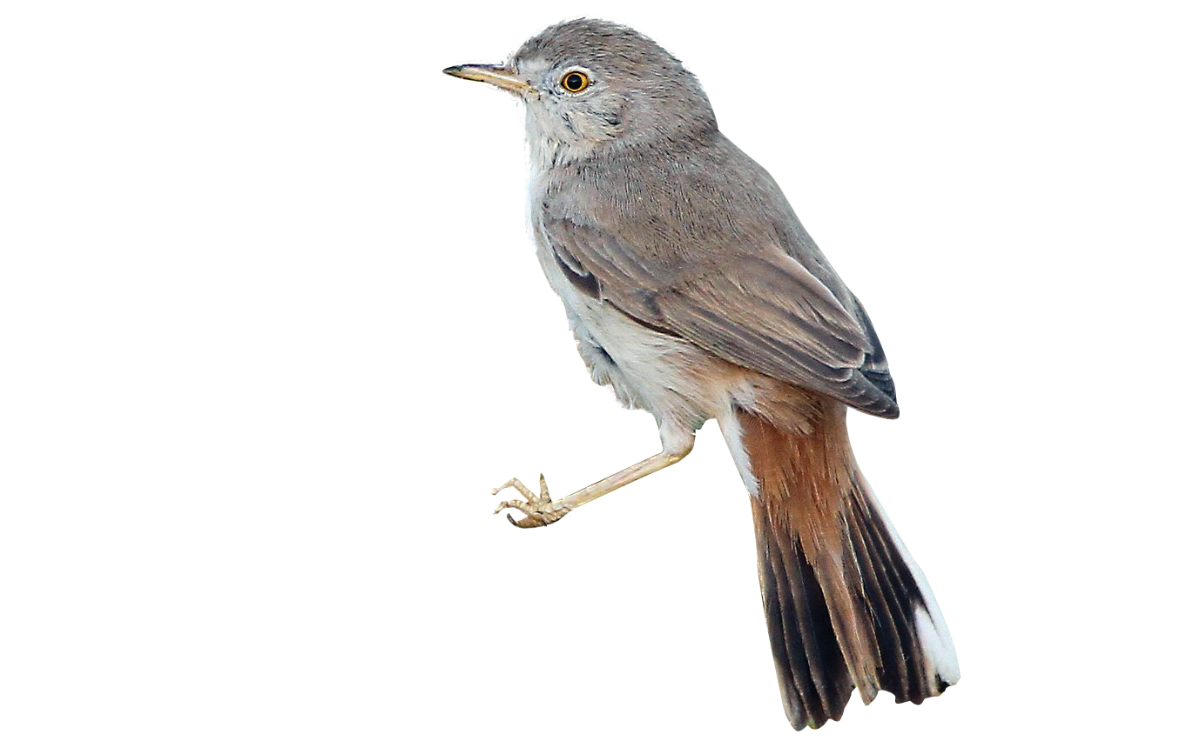
The reserve’s diverse terrain, including sandy and rocky environments, plains, mountain slopes and dunes, provides habitats for resident and migratory wildlife species.
While seasonal rains are crucial for plant growth and diversity, flooding resulting from these rains can pose challenges to certain plant species.
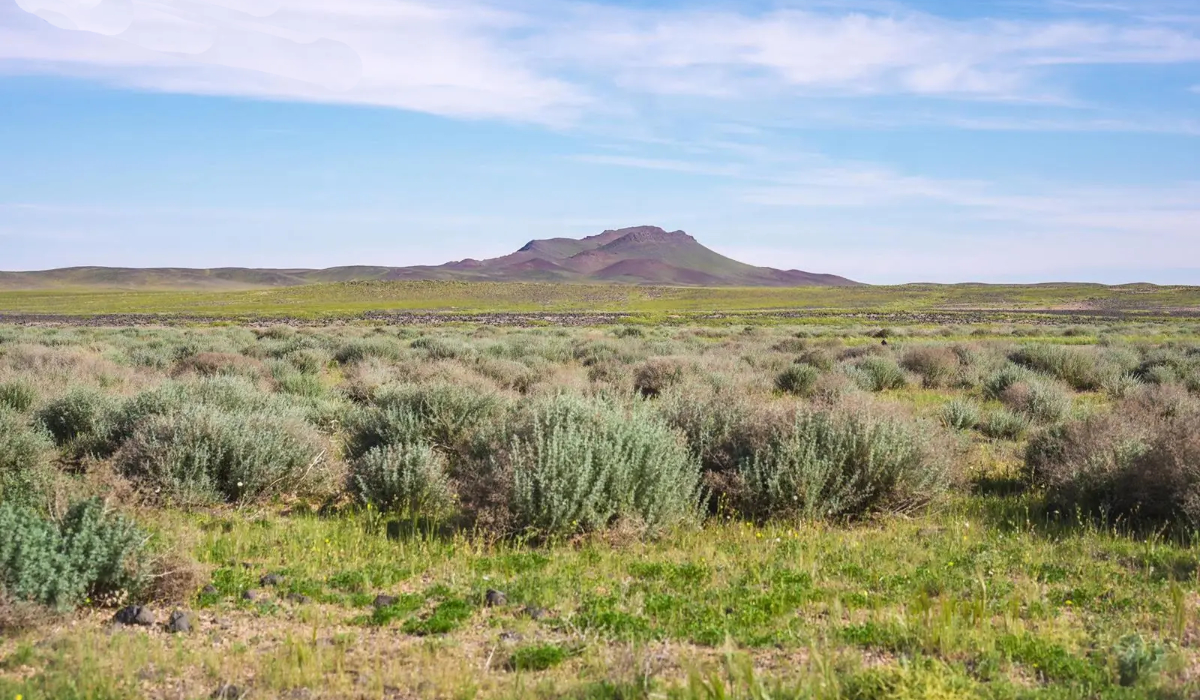
The rains work to rejuvenate soil fertility and improve its composition, contributing to the creation of an ideal environment for the growth of plant species, including annual herbs (which are aided by the rains to complete their life cycle), as well as the flourishing of trees, shrubs and perennial herbs during the rainy season, which enhances plant diversity in the area, Al-Shawaier said.
“However, it should be noted that floods resulting from these rains can negatively affect plants, especially those that do not tolerate continuous water immersion,” he said.
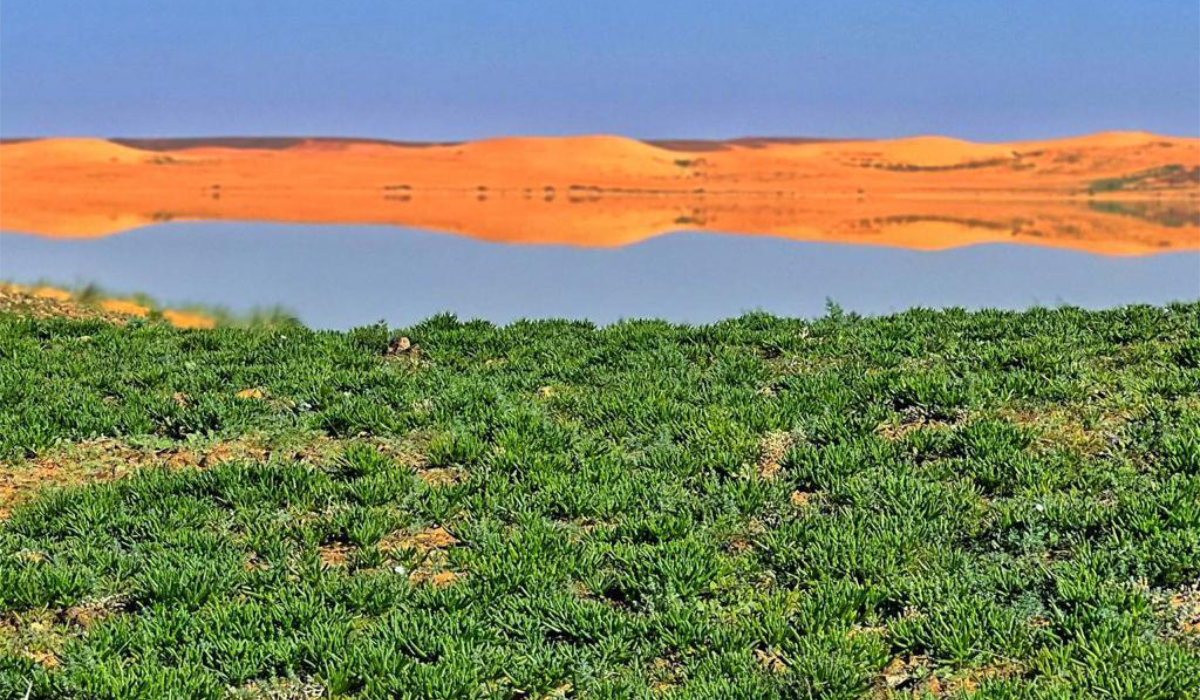
Temporary basins are formed, supplying resident and migratory wildlife with their water needs while the basins last.
Al-Shawaier said that the reserve has implemented various programs, initiatives and projects, including surveying and monitoring wildlife, reintroduction programs, post-release monitoring, and initiatives to maintain vegetation cover and habitats.
These efforts are crucial for meeting conservation targets and ensuring the long-term sustainability of this ecological haven.
Saudi Shoura speaker visits Jordan to strengthen ties
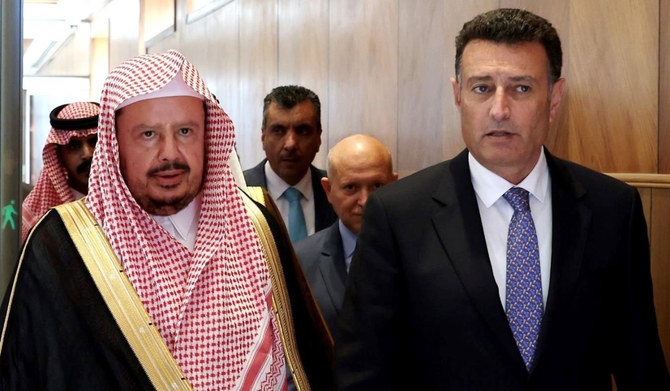
- Dr. Abdullah bin Mohammed Al-Asheikh emphasized that the leaderships of both countries are keen to strengthen and consolidate bilateral relations to meet the aspirations of their brotherly peoples
RIYADH: Saudi Arabia’s Shoura Council Speaker Dr. Abdullah bin Mohammed Al-Asheikh arrived in Jordan on Monday for an official visit.
Al-Asheikh leads a delegation from the council who were officially invited by Ahmed Safadi, the speaker of Jordan’s House of Representatives.
Upon his arrival at Queen Alia International Airport in the capital Amman, he was received by Safadi, Saudi Arabia’s Ambassador to Jordan Nayef bin Bandar Al-Sudairi, and several senior officials of the Jordanian House of Representatives.
In a statement, Al-Asheikh commended the progress and cooperation between Saudi Arabia and Jordan in various fields. He emphasized that the leaderships of both countries are keen to strengthen and consolidate bilateral relations to meet the aspirations of their brotherly peoples.
He praised the Shoura Council’s use of parliamentary diplomacy to promote relations between Saudi Arabia and other countries, through which the council seeks to build bridges that consolidate relations, share views, and highlight the Kingdom’s positions on various issues and events.
During the visit, Al-Asheikh will hold talks with Safadi, focusing on enhancing cooperation in parliamentary fields, unifying efforts by coordinating common positions and visions in regional and international forums and platforms, and strengthening mechanisms of dialogue and parliamentary cooperation. He will also meet with Senate President Faisal Al-Fayez, Senate officials and other senior officials in Jordan.


